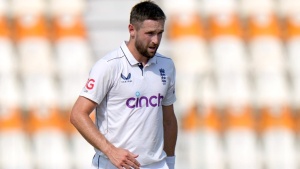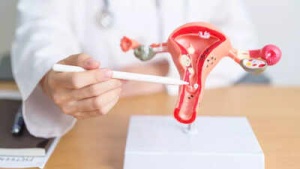Heart attacks don’t always present the same way, and many people, especially women under 65, experience symptoms that are subtle or attributed to other causes. While clogged arteries are often assumed to be the main culprit, research shows that other factors can trigger serious cardiac events. A study published in the Journal of the American College of Cardiology analyzed over 15 years of data from 1,474 heart attacks and revealed that many cases in women are caused by nontraditional factors that are frequently overlooked or misdiagnosed. Understanding these hidden causes is critical for accurate treatment and long-term recovery.
Hidden heart attack causes in women
The research found that while atherosclerosis accounts for 75% of men’s heart attacks, it only explains 47% of women’s cases. Nontraditional causes include embolisms, stress-related events, anemia, infections, and spontaneous coronary artery dissection (SCAD). SCAD, a tear in the coronary artery, is nearly six times more common in women and often misdiagnosed as a typical heart attack caused by plaque buildup. Misdiagnosis can lead to unnecessary treatments, including stent placement, emphasizing the need for careful evaluation.
Misdiagnosis increases long-term risks
Women who experienced heart attacks triggered by nontraditional factors were more likely to face higher five-year mortality rates. Dr. Claire Raphael, M.B.B.S., Ph.D., an interventional cardiologist at Mayo Clinic and first author of the study, stressed that identifying the true cause of a heart attack allows doctors to provide tailored care and improve outcomes. The study found that less than 3% of heart attacks were “truly unexplained,” showing that most cases can be detected with careful assessment.
Expert guidance for prevention and awareness
Dr. Rajiv Gulati, M.D., Ph.D., chair of the Division of Interventional Cardiology at Mayo Clinic, advised clinicians to recognize conditions such as SCAD, embolisms, and stress-related triggers. Patients, he added, should advocate for their health, monitor symptoms, and keep track of chronic conditions such as diabetes, high blood pressure, and high cholesterol. Prompt medical attention for new chest pain, shortness of breath, or severe fatigue is essential, even in young, healthy women.
Lifestyle and heart health
Maintaining a healthy lifestyle is critical for reducing heart attack risk. Regular exercise, avoiding smoking, managing chronic conditions, and staying informed about personal cardiac risk factors can significantly improve outcomes. “The most effective advocate is a well-informed patient,” said Dr. Bradley Serwer, a cardiologist not involved in the study, highlighting the importance of awareness alongside clinical care.
 Abdur Razzak Steps Down as Selector to Run in BCB Elections
Abdur Razzak Steps Down as Selector to Run in BCB Elections
 TSMC Reclaims Top 10 Spot as AI Boom Fuels Record Stock Surge
TSMC Reclaims Top 10 Spot as AI Boom Fuels Record Stock Surge
 Rishabh Pant's Retirement Roast: Wicketkeeper Wishes Chris Woakes 'Rest for Your Arm and My Foot'
Rishabh Pant's Retirement Roast: Wicketkeeper Wishes Chris Woakes 'Rest for Your Arm and My Foot'
 BCCI Elections: Objections to Harbhajan, Shukla, Bhat Nominations Dismissed
BCCI Elections: Objections to Harbhajan, Shukla, Bhat Nominations Dismissed
 Pakistan's Salman Ali Agha: We've Saved Our Best Cricket for Asia Cup Final Against India
Pakistan's Salman Ali Agha: We've Saved Our Best Cricket for Asia Cup Final Against India
 India Aims for Increased Medal Haul at Para Athletics World Championships
India Aims for Increased Medal Haul at Para Athletics World Championships
 Amitabh Bachchan's Witty Tweet Mocks Pakistan After India's Asia Cup Win, Citing Shoaib Akhtar's Gaffe
Amitabh Bachchan's Witty Tweet Mocks Pakistan After India's Asia Cup Win, Citing Shoaib Akhtar's Gaffe
 Headline:
Ovarian Cancer: Nutrition, Fitness, and Lifestyle Strategies for Enhanced Well-being
Headline:
Ovarian Cancer: Nutrition, Fitness, and Lifestyle Strategies for Enhanced Well-being
 Popular YouTuber 'financewithsharan' Hacked: Bitcoin Scam Live Streamed, Account Briefly Terminated
OR
YouTube Channel of 'financewithsharan' Breached: Lessons in Account Security After Bitcoin Scam Attempt
Popular YouTuber 'financewithsharan' Hacked: Bitcoin Scam Live Streamed, Account Briefly Terminated
OR
YouTube Channel of 'financewithsharan' Breached: Lessons in Account Security After Bitcoin Scam Attempt
 Asia Cup Fallout: Pakistan's Salman Agha Accuses India of 'Disrespecting Cricket' After Handshake Controversy
Asia Cup Fallout: Pakistan's Salman Agha Accuses India of 'Disrespecting Cricket' After Handshake Controversy